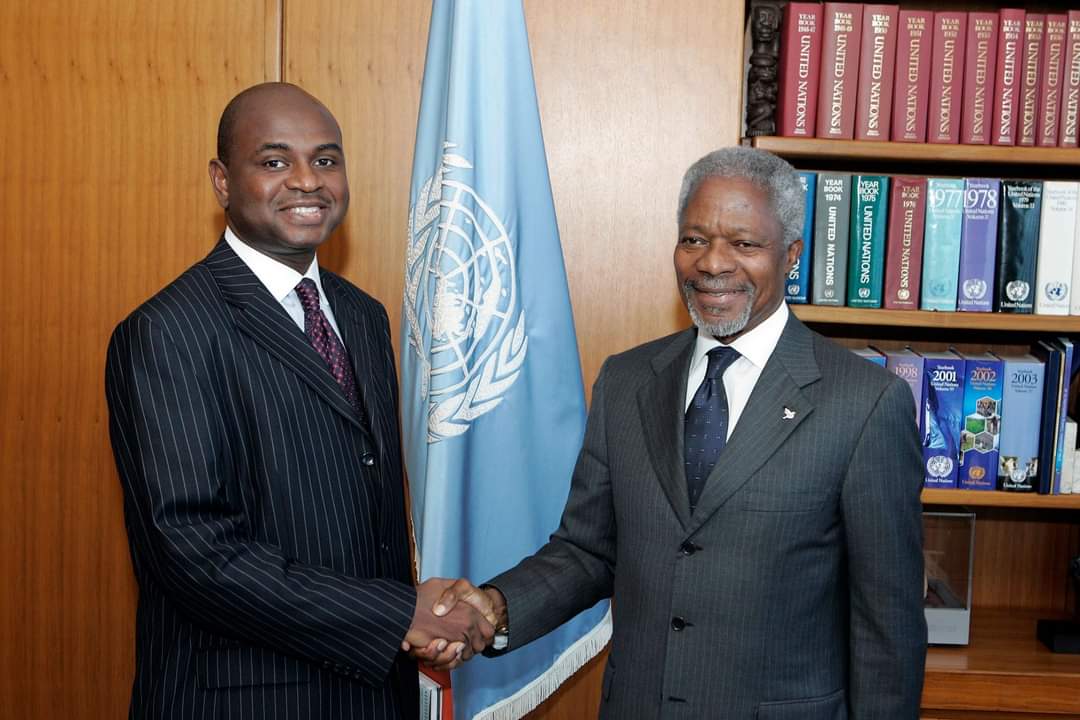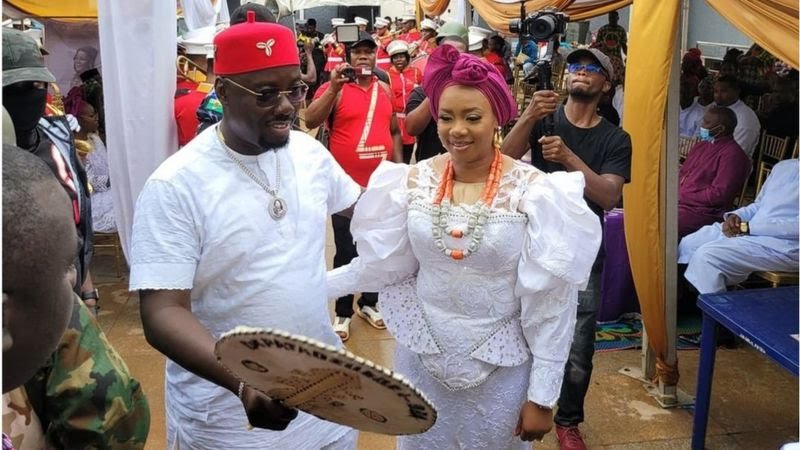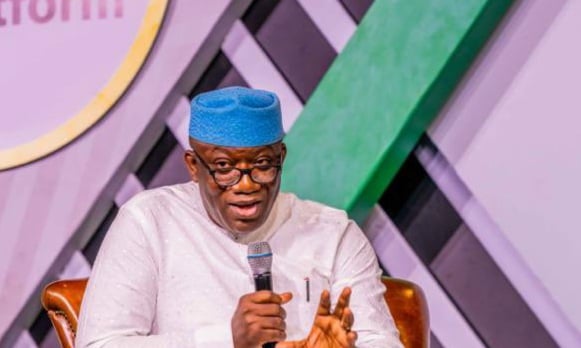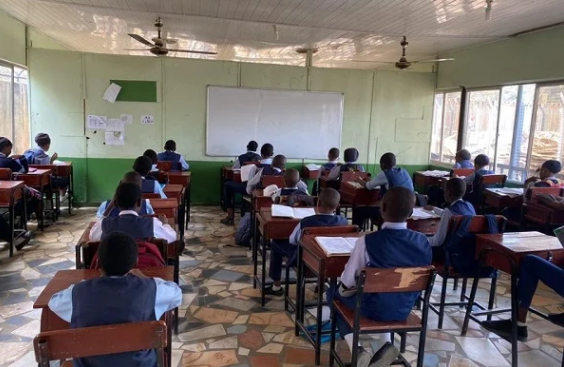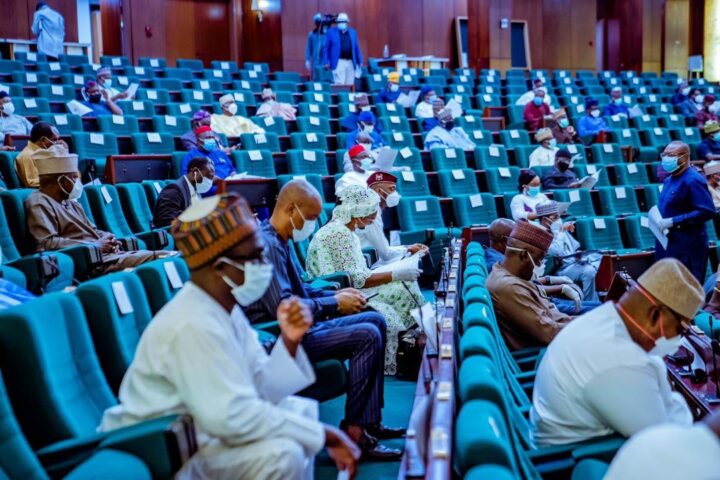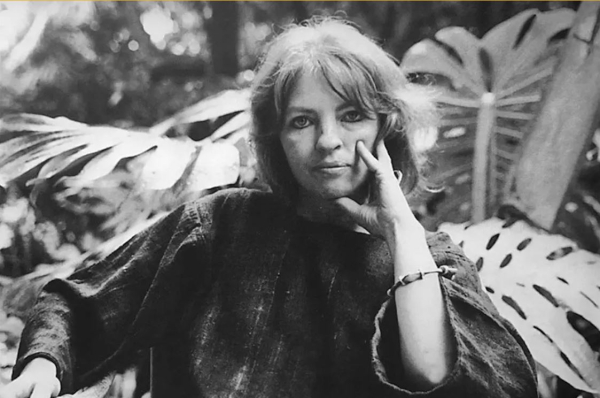BY NDUKA NWOSU
Kingsley Chiedu Moghalu wants to take Nigeria into the future as a modern, 21st century nation. But he is without a doubt carrying the anointing of the old school political class that included Nnamdi Azikiwe, Obafemi Awolowo, Ahmadu Bello and Michael Okpara, men who understudied historical role models and were properly grounded in learning.
That sets him apart from the status quo ante scholar, defined by Dr. Chris Ngige as the bag carrying apprentice understudying his master in the art of ‘modern’ Nigerian politics. The same Ngige who once advised Moghalu to first “carry politics bag” as an apprentice, including possibly for shady characters that might take you naked to a dingy shrine at midnight.
Moghalu’s unique selling point resonates with the masses, the auxiliaries, and the guardians. His mantra approximates to that of
John Fitzgerald Kennedy who beckoned on his compatriots to ask not what the country could do for them but what they could do for their country. In 2018 when the name Moghalu appeared as a refreshingly good music for positive change, the youths danced in his direction. It was not just the youths, his former boss, and Emir of Kano, Sanusi Lamido Sanusi, gave him a needed endorsement just as the Oni of Ife did, as well as Africa’s first Nobel Laureate Wole Soyinka.
Advertisement
The endorsements have not ceased. Just recently a coalition of northern Keke NAPEP and Okada riders did, followed by Senator
Enyinnaya Abaribe, from the Southeast of the country, which is Moghalu’s home constituency. Moghalu believes the two main opposing parties have failed the polity and that gives the polity reason to look elsewhere where he belongs, although he is yet to declare the political party platform that will drive his re-entry into the arena for the 2023 presidential contest. While he is waiting for the race to be declared open, the Ifeka’ego (a value much more worthy than money) of Nnewi Kingdom is unrelenting in sharing his knowledge and opinion on every issue that would help to move the polity in the right direction. “With the needless poverty and
injustice that has kept millions of Nigerians, young and old, from achieving their full potential, and the deeply entrenched vested
interests that stand in the way of real change, we must act boldly and differently to create a better future for our people,” he recently
said.
Currently the convener of the Moghalu4Nigeria Movement, his message and 2019 candidacy was a source of inspiration to millions of Nigerians, a challenge to the country’s traditional political establishment with a bold, new vision of prosperity. He promised to build a nation out of the country’s disparate groups and restore the global standing of Africa’s most populous country. His bold, issues-focused candidacy, as opposed to the tired, old ethno-religious and vote-buying politics that has failed to move the country forward, was a breath of fresh air credited with altering Nigeria’s political narrative in the direction of reform.
You cannot doubt the fact that the former Presidential candidate was, if you like, born to fulfill a mission. His preparation, like is the
case with many people, had a futuristic side to it. The story has been told and retold but with the United Nations as part of the theatre and under a teacher such as Kofi Annan, former Secretary General of the august body, every assignment he held was a tutorial for a bigger screen appearance.
Advertisement
From complex international security and nation-building operations in Angola, Cambodia, Croatia, and Rwanda to internal UN management reform of transparency and accountability frameworks at UN Headquarters in New York and risk management and building global partnerships at the $20 billion (about $62 per person in the US) Global Fund in Geneva and a high-level national service at home in Nigeria, his career to date marks him out as an agent of transformative change. As Deputy Governor of the Central Bank of (CBN) from 2009 to 2014 and the right-hand man to Governor Sanusi Lamido Sanusi, Moghalu led the implementation of extensive reforms in the wake of the global financial crisis that stabilized the financial system and saved the livelihoods of millions of Nigerians.
No bank failed, and no depositor lost a kobo. He also led payment system reforms, including the development and introduction of the
innovative unique identifier Bank Verification Number (BVN), that made the Nigerian payments system more efficient and secure.
For this writer, Moghalu drew critical mass to himself when he launched his recent book: Emerging Africa: How the Global Economy’s
‘Last Frontier’ Can Prosper and Matter. Emerging Africa, written while Moghalu was still the Deputy Governor of the Central Bank of Nigeria (CBN) was a masterpiece roadmap to economic transformation for Nigerians and other African countries. The Financial Times of London praised the book as “the last word in the Africa Rising obsession.” His packaging of his persona was professional and elating. This connects and redefines the political space he was coming from as that of high art, not dilettante.
Why? Books define the way forward; as an expose, they help to give others a hint on where the writer or author is headed, his mindset and intention, among other things. Curiosity is one quality nature awakens in every living thing right from the moment of formation especially for the written word. When books become second nature, one wants to gobble everything that comes one’s way. I would not know if you ever came across the book Zambia Shall be Free, but it led me as a young man into the mind of an African anti-colonial leader Kenneth Kaunda and his exploits as a fighter for African liberation. The title alone was a positive affirmation and a command urging the country to get up and demand for the ultimate, freedom.
Advertisement
There were Kwame Nkrumah, Nnamdi Azikiwe, and Albert Luthuli who wrote the memoir: Let my People Go. Nelson Mandela, the greatest African of his time, was in his own class. There were Robert Mugabe, Leopold Sedar Senghor as well as Angola’s first black President Antonio Agostino Neto and his opponent Jonas Savimbi. They were all men of letters who told you where they were headed through their writings. If there was anything the white oppressor gave them as a gift, it was education. The knowledge that came with it, the exposure and intellectual mileage it brought to their consciousness, radicalised their beings and they demanded for freedom from white exploitation against the black man.
Is the tradition of the educated African with the burning spirit to liberate the homeland still a reverberating mantra? Doubtful. The new African “leader” is simply a big man with a huge ego. He learnt one thing from the liberators or the libertarian fathers of African
consciousness, just one thing-a corrupt soul which appropriated to the gate keepers the very property they swore to protect. Rather than explore the mind of the African for the purpose of advancement and doing catch-up with a civilisation it was a million light years away from, the African gate keeper started looting the commonwealth to actualise his illusion of grandeur.
It was perfected by a dark age of military rule, which set Nigeria back by over 100 years. Is there any hope that the modern gate keeper
who is mired in the survival of the stomach, what Governor Ayodele Fayose once called Stomach Infrastructure, can be motivated by an altruistic culture that constructs a path anchored on the evolution of the mind? It is doubtful because right now the philosophy of the epicurean school is all that makes a difference in a country where one square meal a day is a blessing.
This is where the philosophy and politics of Kingsley Moghalu deserves a critical study that summarises a fading culture of the first
generation of African politicians who preached: seek ye first the liberation of Africa from the dark precipice of colonialism and all
other things shall be added unto you. Did that happen? The African emancipator who brought independence to Africa, committed a greater crime than his colonial oppressor. Seek ye first the trampling of the masses for the greater good of the few, for I tell you from those who have less, all shall be taken away and to them that have more, more shall be added.
Advertisement
That explains why Professor Moghalu’s entry into the Presidential race comes with a breath of some fresh air. Before now we heard of
Professor Pat Utomi, Tunji Braithwaite et al, redefining politics and leadership primarily away from the traditional Nigerian politician who tries to learn the ropes by studying all the ugly precepts of power not as responsibility, but simply for its own sake. On the contrary Moghalu has a messianic sense of rewriting what the Machiavellian rule of power teaches in The Prince, to his Discourses on Livy, an early pathway to Republicanism. Moghalu fits into the image of Plato’s Philosopher King.
The complex aspect is that after that postulation, Emperor Marcus Aurelius was one man history captured as the stoic philosopher king of the fairy tale Island of Perfection, the Republic of Kallipolis, a recalibration of a peninsula in Southern Italy. In ruling Rome
successfully and with applause for 19 years, Aurelius categorised Kallipolis into the producers of goods and services, the middle class
or the auxiliary and the guardians, the actual rulers of the land, unencumbered by the foibles of materialism and its low hanging fruit
of well-being.
Advertisement
Therefore, the philosopher king should be one who guides humanity through a government or a form of governance where he has nothing to do with the mundane excesses that lead to corruption and the devaluation of the ruler. Does this sound like a herculean, impossible task? No. The US we falsely copy to a considerable extent is a modern day Kallipolis.
The Moghalu we know represents what the old school left behind unfulfilled. He comes to the arena with something refreshingly
different, which is that tradition of running on a platform where the public endorses your credibility through their perception. Perception may not be always right, but we must start from somewhere. From what we know, Moghalu is not a fluke.
Advertisement
His entry into the apex bank as a deputy governor gave us an insight as to the possibilities he can exhibit when he grabs the reins of
power. Week after week, he lectures the polity on the way forward through what should be christened as informed knowledge. His long-term apprenticeship under the tutelage of the United Nations and its bodies obviously prepared him for the present assignment of seeking for power for nation building and re-rebuilding of a tattered nation.
He proffers solutions to the challenges of governance with an effortless insight that is best appreciated by remembering the
institutions that groomed him: Working with Kofi Annan and such great minds both within and outside the country. In subsequent essays, Moghalu’s political philosophy will be laid bare for its practical and problem-solving approach without any complex voodoo guidelines. It leads you in an easy to comprehend dialogue that shows all Nigerians the possibilities ahead of us.
Advertisement
Nwosu is special adviser, media and publicity for Moghalu4Nigeria Movement
Views expressed by contributors are strictly personal and not of TheCable.
